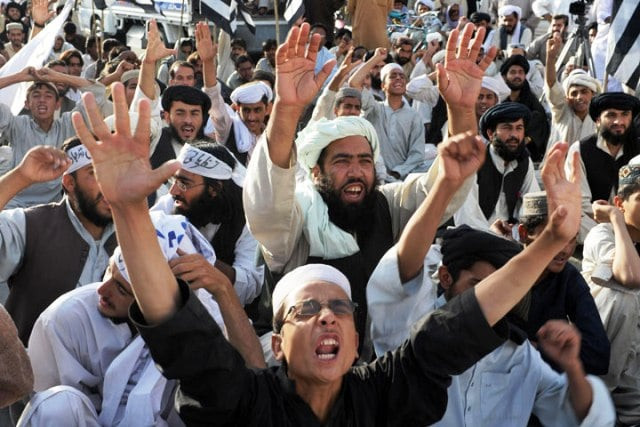The discourse on the secular versus religious state in Pakistan is almost always based on the personal alignments of the debaters. Routinely missed out though are the hard facts about the actual actors – people and institutions.
If the average citizen is asked to describe in one word those who form this state, one can rest be assured that it wouldn’t be pious, modest, honest or trustworthy – the presumable attributes of momins and true Muslims.
The state structure has its roots in the Delhi sultanate and then the Mughal Empire, which was established by Muslims from Central Asia. The true foundation, however, was laid by the British crown. Except for a few statutes introduced after partition to give it a semblance of Islamic character, most of what forms the constitution of the Islamic republic is derived from the Government of India Act of 1935.
Be it the armed forces, parliament, bureaucracy or judiciary, all institutions of this so-called Islamic state are knee-deep in corruption allegations - from French submarines to missing persons and from Hajj scams to judicial murders.
Then, there is a Council of Islamic Ideology, a ministry of religious affairs and the Federal Shariat Court (FSC), with their bread-and-butter linked to the theocratic project. I have yet to come across a single service these institutions have rendered towards Islam or for Muslims. For example, the FSC ruling which declared land reforms un-Islamic disregards the fact that the biggest impediment to overcoming rural poverty is landlessness.
Because religion has always been portrayed as the overriding influence in state affairs, the custodians of the Islamic-republic trademark owe us an explanation for this "un-Islamic" conduct of the people and institutions that make up the Islamic state. Be it secular or theocratic, the state cannot continue to be unrepresentative, totalitarian and oppressive.
Secular or theocratic: State needs to deliver
Would you call those who form the Pakistani state "true Muslims"? I wouldn't.



COMMENTS
Comments are moderated and generally will be posted if they are on-topic and not abusive.
For more information, please see our Comments FAQ